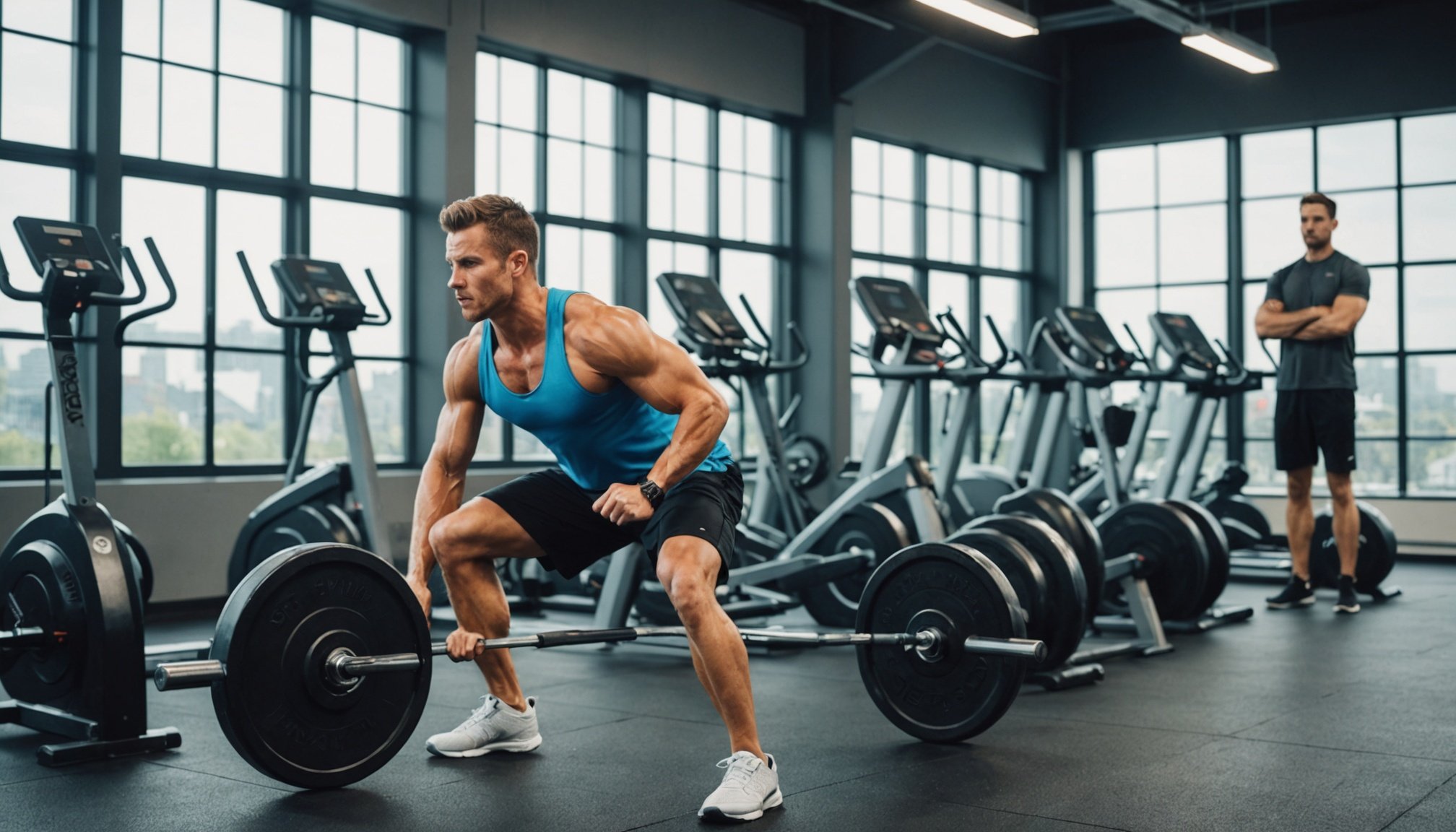Whether you are an early bird or a night owl, your fitness routine is likely a vital part of your daily schedule. However, have you ever considered how the time of day could impact your performance at the gym? This topic is essential for understanding how to optimize your workouts. The time of day can influence various physiological and psychological factors, including your body temperature, hormone levels, and alertness. This can subsequently alter your ability to perform exercises and influence your training outcomes. In this article, we delve deep into the science behind this intriguing relationship.
The Impact of Morning Workouts
Rise and shine! It’s time to lace up those running shoes and hit the gym. Morning workouts are popular for many of us as it can set a positive tone for the rest of the day. But how does this translate to your performance?
In parallel : How to balance muscle building and flexibility for bodybuilders?
The human body has a natural rhythm known as the circadian rhythm, which regulates sleep and wake cycles. This cycle also impacts body temperature, blood pressure, and hormone release. Studies have shown that the body’s core temperature is lowest in the morning. This means your body might need more time to warm up and achieve peak performance.
Morning workouts can also influence hormone levels. Levels of cortisol, the stress hormone, are highest in the morning. This may help your body handle the intensity of the workout better. Additionally, morning workouts may have a positive impact on your sleep quality. Exercising increases body temperature and energy expenditure, promoting better sleep at night.
Have you seen this : What are the signs of overtraining in muscle building workouts?
The Advantages of Mid-day Training
As the day progresses, your body begins to wake up, and with it, your performance capabilities increase. If your schedule allows, mid-day workouts could be a great solution to balancing your body’s natural rhythms with the demands of your day.
By mid-day, your body’s core temperature starts to peak, and so do your strength and endurance levels. Studies have shown that muscle strength, flexibility, and endurance are significantly higher in the afternoon compared to the morning. This means you can potentially lift heavier weights and endure longer training sessions due to increased blood flow and oxygen supply to the muscles.
Moreover, mid-day workouts can serve as a much-needed mental break from your work or study routine. They can act as a stress reliever, helping clear your mind and boost your mood.
Performance Peaks in the Evening
Evening workouts often get a bad rap, with worries about disrupted sleep patterns and lower energy levels. However, they may offer unique advantages when it comes to performance and the quality of your workouts.
Research suggests that late afternoon and early evening may be the optimal time for intense workouts as this is when your body temperature, strength, and endurance peak. Additionally, your reaction times are faster, and the perceived exertion of exercise is lower, enabling you to train harder and longer.
Evening workouts can also offer psychological benefits. After a long day of work or studies, hitting the gym can help you unwind and release any accumulated stress. It’s a great way to close your day on a positive note, leading to a sense of accomplishment.
Drawbacks of Late-night Exercise
While early evening workouts can be beneficial, late-night exercise comes with its challenges. Working out too close to your bedtime can interfere with your sleep. Exercise stimulates the release of hormones like adrenaline, which can keep you alert and hinder the onset of sleep.
An intense late-night workout can also increase body temperature and heart rate, both of which disrupt sleep quality. However, this can vary greatly from person to person, and some may find that late-night workouts do not affect their sleep.
What works best for you?
Ultimately, the best time to exercise depends on your individual preferences and lifestyle. Consider your personal commitments, energy levels, and convenience when crafting your workout schedule. Whether you choose to workout in the morning, mid-day, or evening, consistency is key. Regular exercise, regardless of the time of day, offers significant health benefits, including improved strength, cardiovascular health, and mental well-being.
Remember that balance is the key to a successful fitness journey. Listen to your body and adjust your schedule as needed. And most importantly, enjoy your workouts and have fun while doing it.
The Science behind the Influence of Time of Day on Exercise
The impact of time of day on your workout performance is not mere speculation but backed by scientific research. This variance in performance across different times of the day is due to our body’s circadian rhythm or internal clock. This natural rhythm controls multiple bodily functions, including blood pressure, body temperature, heart rate, and hormone levels, which collectively play a critical role in our physical performance.
An understanding of how our body functions at different times can help us determine the best time to exercise. For instance, our body temperature is lowest in the early morning and gradually rises throughout the day, peaking in the late afternoon. A higher body temperature improves muscle flexibility and reduces the risk of injuries, making afternoon or early evening exercise potentially more beneficial.
Similarly, our heart rates and blood pressure are also lowest in the morning, gradually increasing throughout the day. A lower heart rate and blood pressure mean our bodies are less stressed and more efficient during a morning workout, lowering the risk of cardiovascular issues.
Hormone levels also fluctuate throughout the day. Cortisol, the stress hormone, peaks in the morning, helping us handle physical activity better. On the other hand, testosterone, which aids in muscle growth and repair, is highest in the evening.
A meta-analysis of multiple studies shows that the body’s response to exercise varies at different times, affirming the influence of time of day on performance. However, individual differences and preferences still play a significant role.
Conclusion: Finding the Balance
In conclusion, while the time of day can influence your performance at the gym, it’s essential to remember that the most crucial factor is consistency. Regular physical activity, whether it’s a morning jog, a mid-day yoga session, or an evening spin class, offers a myriad of health benefits.
Choosing the best time to exercise isn’t always about optimization but finding a balance between your schedule, personal preferences, and lifestyle. Morning exercise could be a perfect start to the day for some, while others might find an evening workout more relaxing and stress-relieving.
Whether you prefer morning workouts to kickstart your day or evening exercise to unwind, the key is to listen to your body and find a consistent routine that works for you. Also, keep in mind that while moderate intensity exercise can promote better sleep, intense physical activity close to bedtime might disrupt your sleep quality.
So, open a separate window in your routine for regular exercise, and enjoy the journey towards better strength, cardiovascular health, and mental well-being. No matter when you choose to work out, remember to make it a time of day that you look forward to, adding a touch of enjoyment to your fitness journey.






